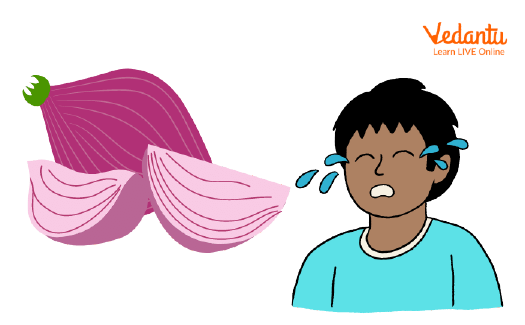




How Chemistry Influences What You Eat, Use, and Experience Every Day
Today, we will learn about the “Interesting facts about Chemistry”. Chemistry is a field of science that studies chemical elements and molecules and how they interact. It is the study of the materials that make up our body and everything in the world around us. It also contains the changes that these compounds go through. Sometimes Chemistry is regarded as 'core science'. It is an essential component of other major sciences. It is a very interesting science. A chemist is someone who studies or specialises in this field of study. In this article, we will further discuss “Chemistry” in detail.

Chemistry Facts
Chemistry Facts
Chemistry is the scientific study of matter's properties and how matter interacts with energy. Chemistry is a subject that is very closely related to Physics. It is an essential component of other major sciences such as Biology, Earth science, and Physics. Chemists are scientists who specialise in Chemistry. Chemistry may be found everywhere around us. Engineers utilise Chemistry to create electronics such as your television and cell phone. Farmers use Chemistry to make their crops grow so that we can eat them. Chefs use Chemistry to prepare tasty food. Chemistry allows you to have a deeper understanding of the world around you and how it operates.
Cools Things about Chemistry
Some of the most interesting Chemistry facts are that Bromine and mercury are two solid elements that may be liquid at room temperature. Gallium, on the other hand, can be melted by holding a lump in the warmth of your hand. The only non-silver metals are gold and copper. Water expands when it is in solid form, but other substances shrink when they freeze. A healthy adult's body has 250 g of salt. The most abundant element in the world is hydrogen, whereas the most prevalent element in the earth's atmosphere is oxygen.
Liquid air like water has a blue colour. A rubber tyre is technically one big polymerized molecule. Copper is the only naturally antibacterial metal. In the gas state, oxygen is colourless but in the solid and liquid states, it is blue. Under normal circumstances, oil and water do not combine. The solid form of carbon dioxide is known as dry ice (CO2). California is recognised as the most costly element in the world. Osmium is the earth's densest known stable element.
Interesting Facts about Chemistry in Our Daily Life
The colour of green vegetables is caused by the presence of chromospheres which is a chemical component that absorbs all wavelengths while reflecting green light. Similarly, the red colour of tomatoes is caused by a chemical component known as lycopene. This chemical is used to determine its quality. The teardrops that come out of our eyes while cutting an onion are caused by a chemical reaction that causes the sulphur in the onion cells to break and produce a volatile sulphur compound which is released into the air and causes itching in your eyes. Our bodies are made up of chemical components such as oxygen, carbon, hydrogen, nitrogen, calcium, and phosphorus.
Chemical signals are responsible for the many emotions like love, jealousy, envy, and passion that we experience. The most unnoticed and repetitive processes that occur in our daily lives are linked to chemical science.

Why Do Onions Make Us Cry?
Facts About Elements
An element is a pure material composed of one type of atom. Elements are the building blocks for every other matter in the world. There are now 118 elements which are known elements. Only 94 of these are thought to occur naturally on Earth. The atomic number is a significant quantity in an element. Each atom has this number of protons. Every element has a different atomic number. Because hydrogen is the initial element and contains just one proton, it has an atomic number of one. Each atom of gold has 79 protons and an atomic number of 79. Elements have the same number of electrons as protons in their normal state.
Conclusion
In this article, we studied Chemistry. Chemistry is the branch of science that studies the characteristics, content, and structure of elements and compounds. It is the energy generated or absorbed as they change. We have also studied how Chemistry is very essential in our daily life.
FAQs on Fascinating Chemistry Facts That Shape Our Daily Life
1. What are some fun facts about chemistry?
Chemistry is full of surprising facts. Here are a few interesting examples:
The only two non-silvery metals are gold and copper.
A bolt of lightning can generate enough heat to produce ozone (O₃), which is why you can sometimes smell a sharp, clean scent after a thunderstorm.
Although they look and feel completely different, diamonds and graphite are both made of 100% pure carbon. Their different properties come from how the carbon atoms are arranged.
2. How is chemistry essential in our daily lives?
Chemistry is happening all around us, every moment. The food we cook undergoes chemical reactions, like the Maillard reaction that browns meat. Soaps and detergents clean through a chemical process called saponification. Even the emotions we feel, like happiness or love, are driven by chemical messengers in our brain called neurotransmitters, such as dopamine and serotonin.
3. Are there any elements that can melt in your hand?
Yes, the element Gallium (Ga) is a metal with a very low melting point of just 29.76°C (85.58°F). Since normal human body temperature is around 37°C (98.6°F), a solid piece of gallium will melt into a liquid puddle right in the palm of your hand, without causing any burns.
4. Why do onions make us cry? What is the chemistry behind it?
This is a classic example of kitchen chemistry. When you cut an onion, you break its cells, releasing enzymes that mix with sulfur-containing compounds. This reaction produces a volatile gas called syn-propanethial-S-oxide. When this gas reaches your eyes, it reacts with the water in them to form a very mild sulfuric acid, which irritates the lacrimal glands and makes you tear up.
5. Is it true that our bodies are made of stardust?
Yes, chemically speaking, this is true. The most essential elements for life—such as carbon, nitrogen, and oxygen—were not created on Earth. These elements were forged in the intense heat and pressure inside stars through a process called nuclear fusion. When ancient stars exploded as supernovae, they scattered these elements across the universe. Over billions of years, these elements formed planets, including Earth, and eventually became the building blocks for all life, including us.
6. What makes chemistry a unique science?
Chemistry is often called the 'central science' because it forms a crucial bridge between physics and biology. While physics explains the fundamental rules of matter and energy, and biology studies complex living systems, chemistry focuses on the level in between: atoms and molecules. It uniquely explains how these building blocks interact, bond, and transform to create everything from a simple grain of salt to the complex DNA that codes for life, making it fundamental to understanding our world.
7. What is an interesting fact about water's chemical properties?
A fascinating chemical property of water (H₂O) is its ability to exist in all three states of matter—solid, liquid, and gas—at the same time. This phenomenon occurs at a specific temperature and pressure known as the triple point (0.01°C and 0.006 atm). At this point, you can observe ice, liquid water, and water vapour coexisting in a stable equilibrium, a property that is extremely rare for other substances.









